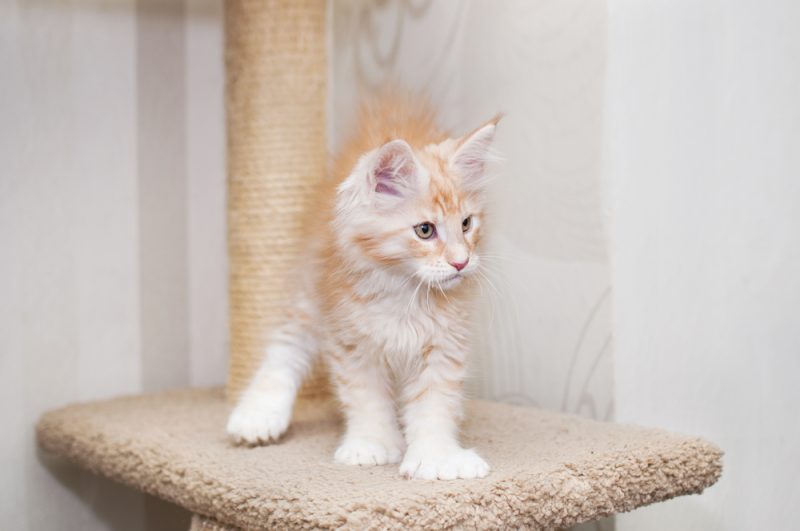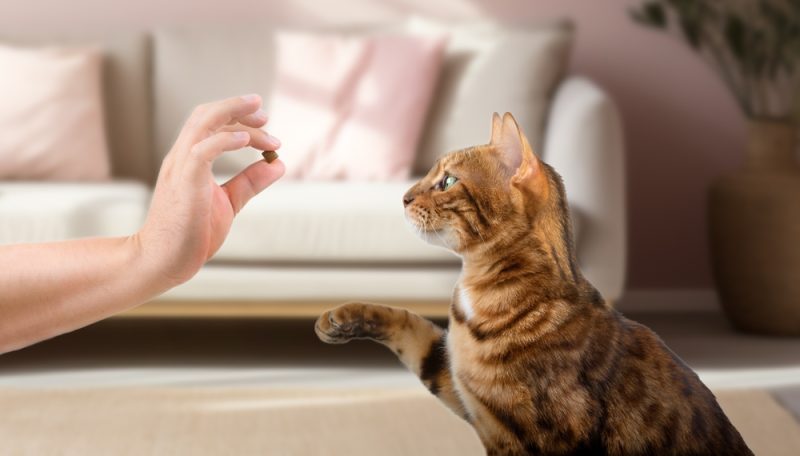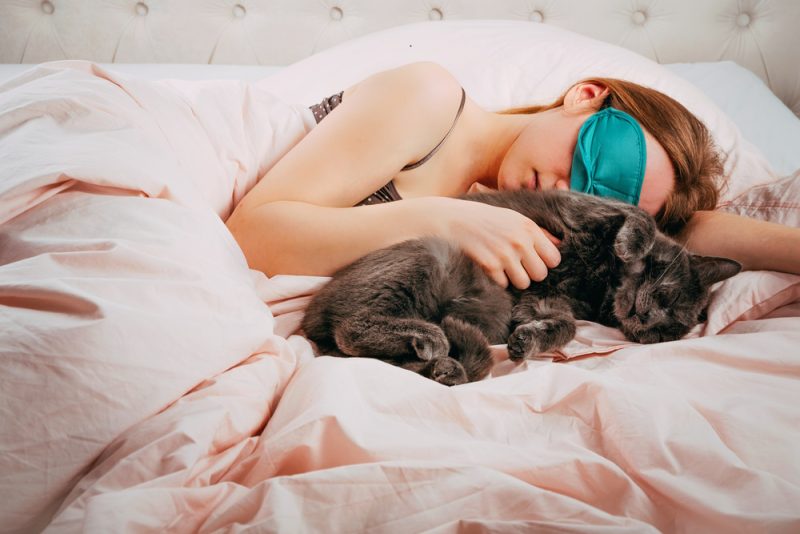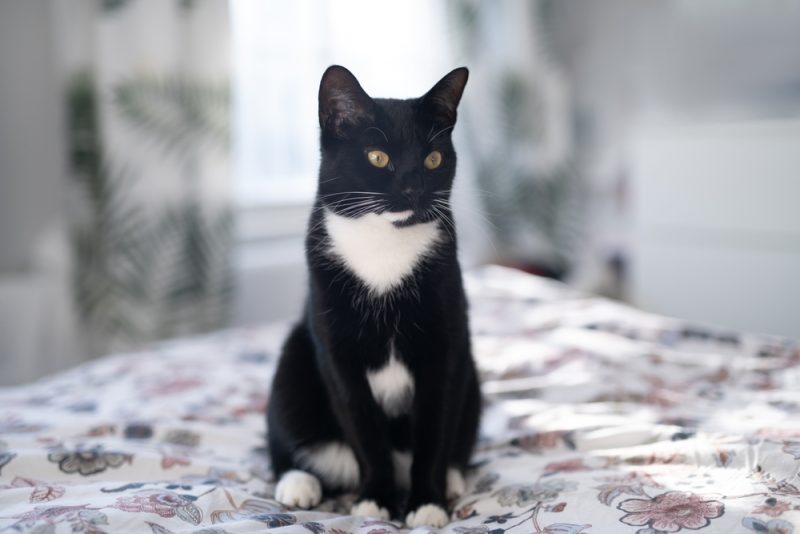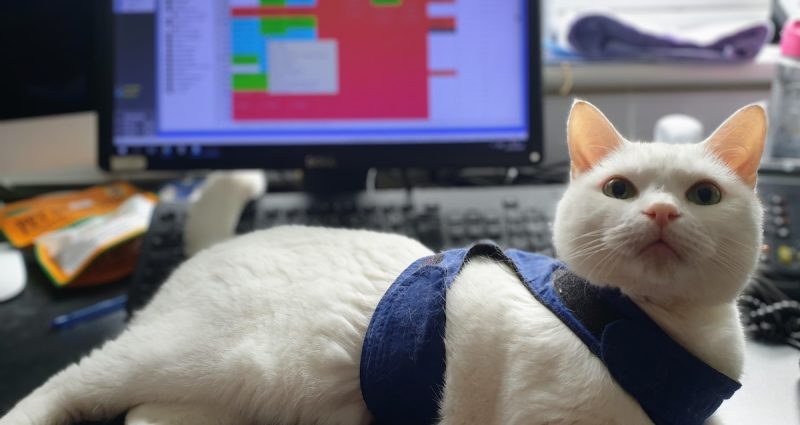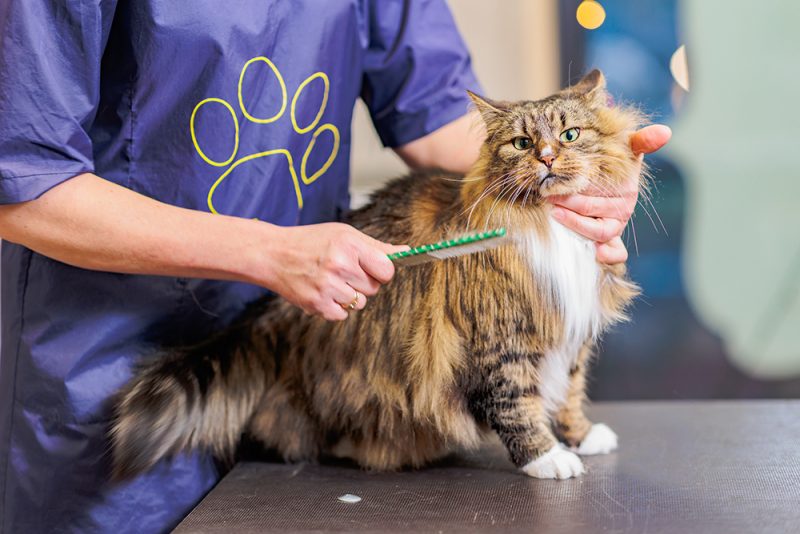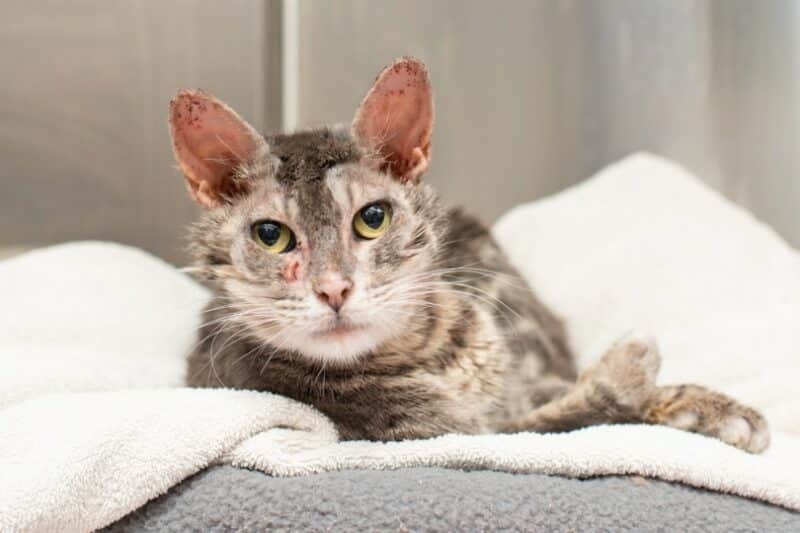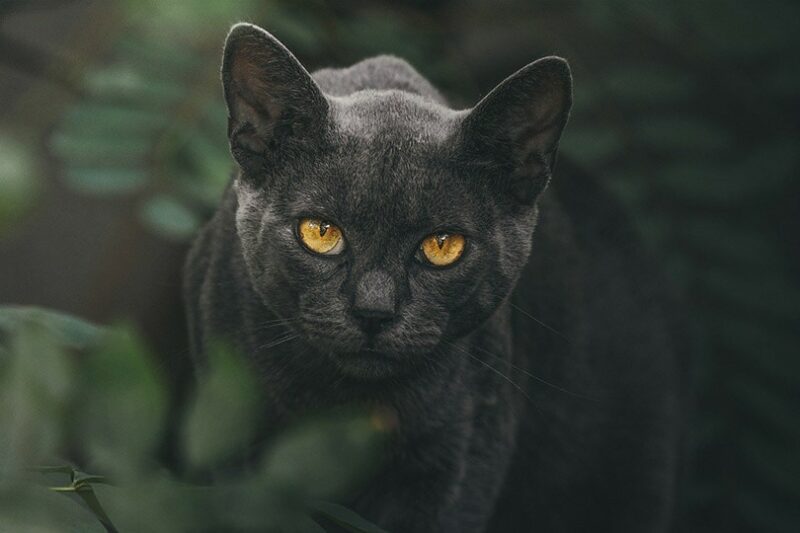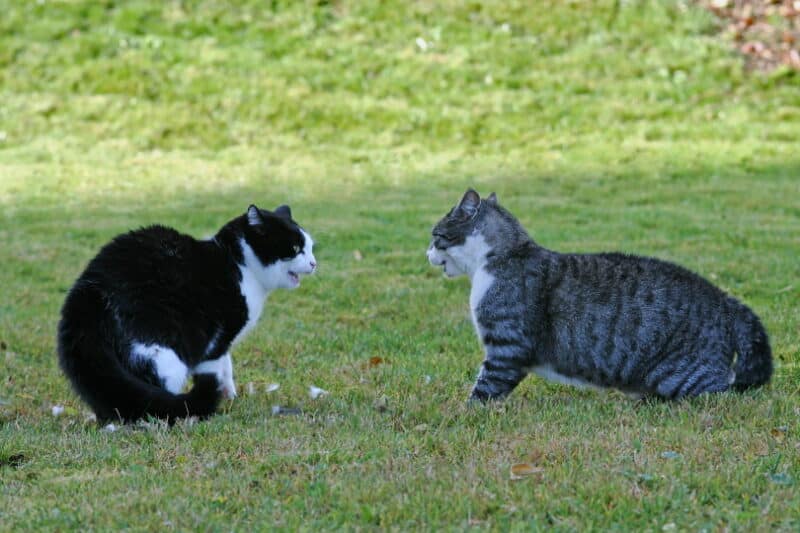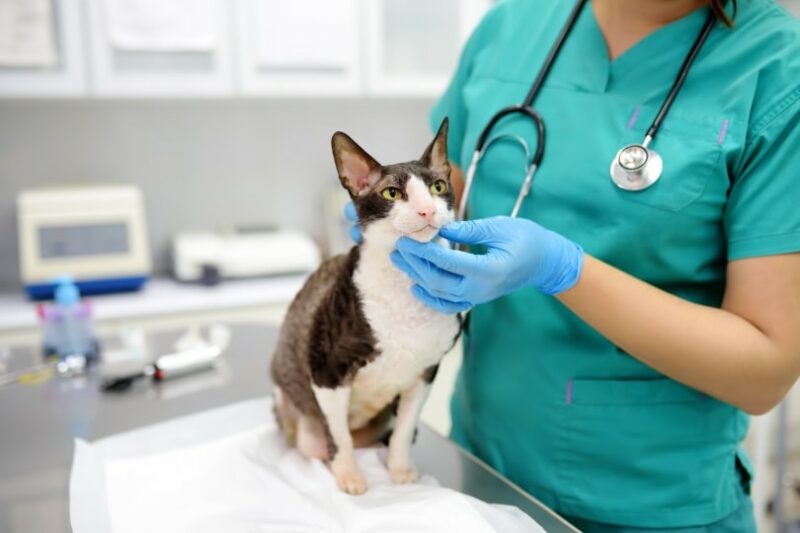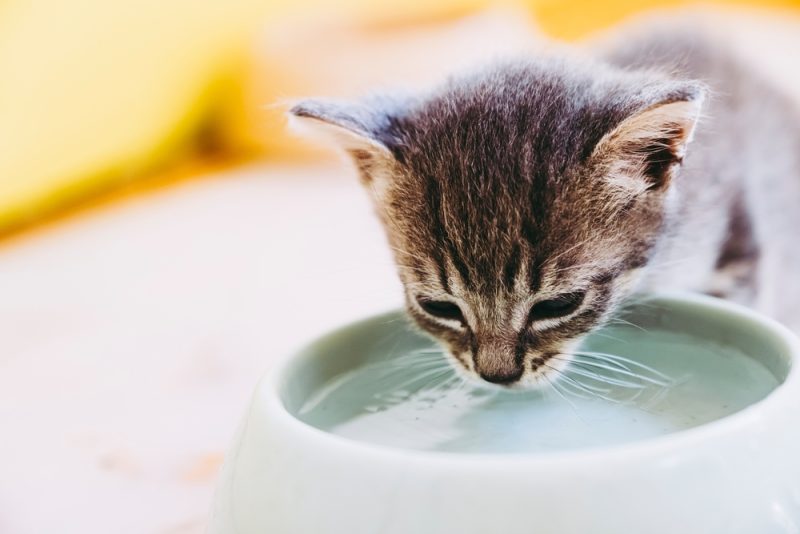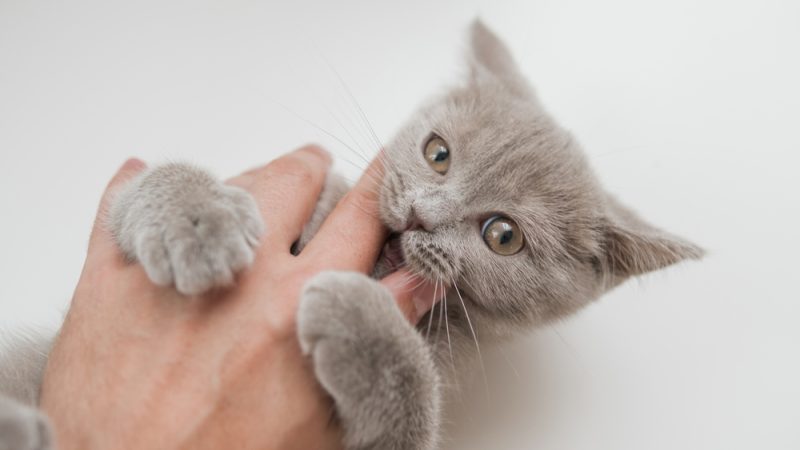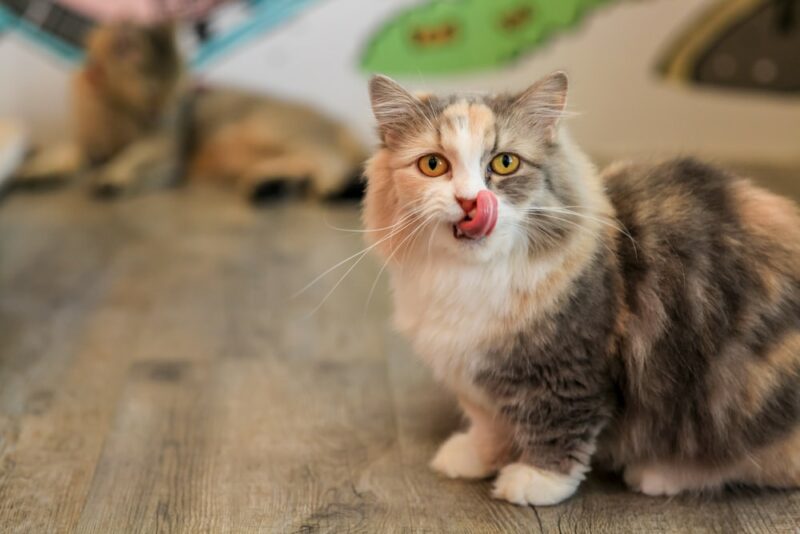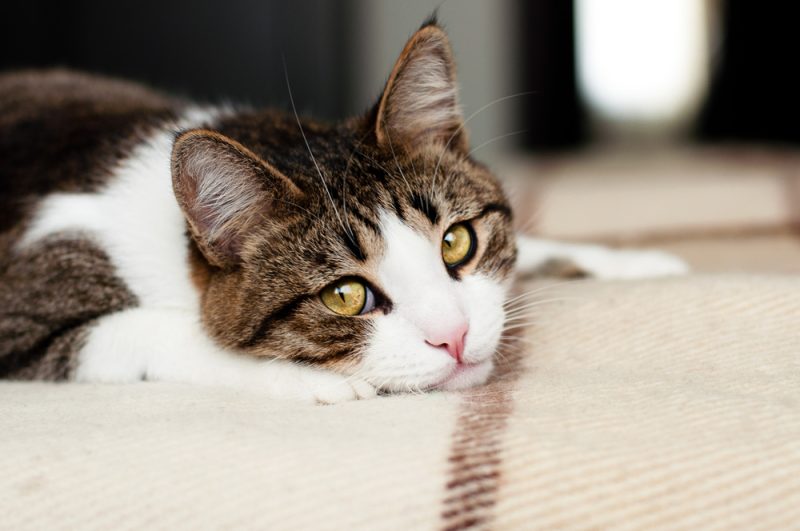In this article
Cats can eat some pretty crazy things, even though they are naturally obligate carnivores. If your cat has taken a shine to these delicacies, you might wonder if cats can eat pistachios. Luckily, pistachios are non-toxic to our wide-eyed kitties. However, they are not the best choice when it comes to snacks.
So, even though pistachios aren’t toxic to cats, they can still pose some risks. It’s imperative to know the consequences of eating this little green nut. Let’s dig into why your cat should stay away from pistachios completely.

What Are Pistachios?
Pistachios are attractive little seeds that come from a tree in Asia. While commonly referred to as nuts, these are called drupes, which are fleshy fruits that contain a shell to protect the delicate internal seed.
Pistachios have flourished over the years in popular recipes throughout various world cultures. You can find pistachio-flavored ice creams, puddings, candies, baked goods, and nut mixes.
Pistachios are widely acknowledged for the incredible health benefits we humans can reap by adding them to our regular diet. These drupes have potent antioxidants, an abundance of fiber, and are loaded with unsaturated fatty acids.
While they are delicious and nutritionally positive for people, our feline friends have no need for them in their daily diet. Luckily, these nuts are non-toxic, so in the rare event your cat eats one, they should be fine.
But let’s try to avoid feline-pistachio combinations when you can.
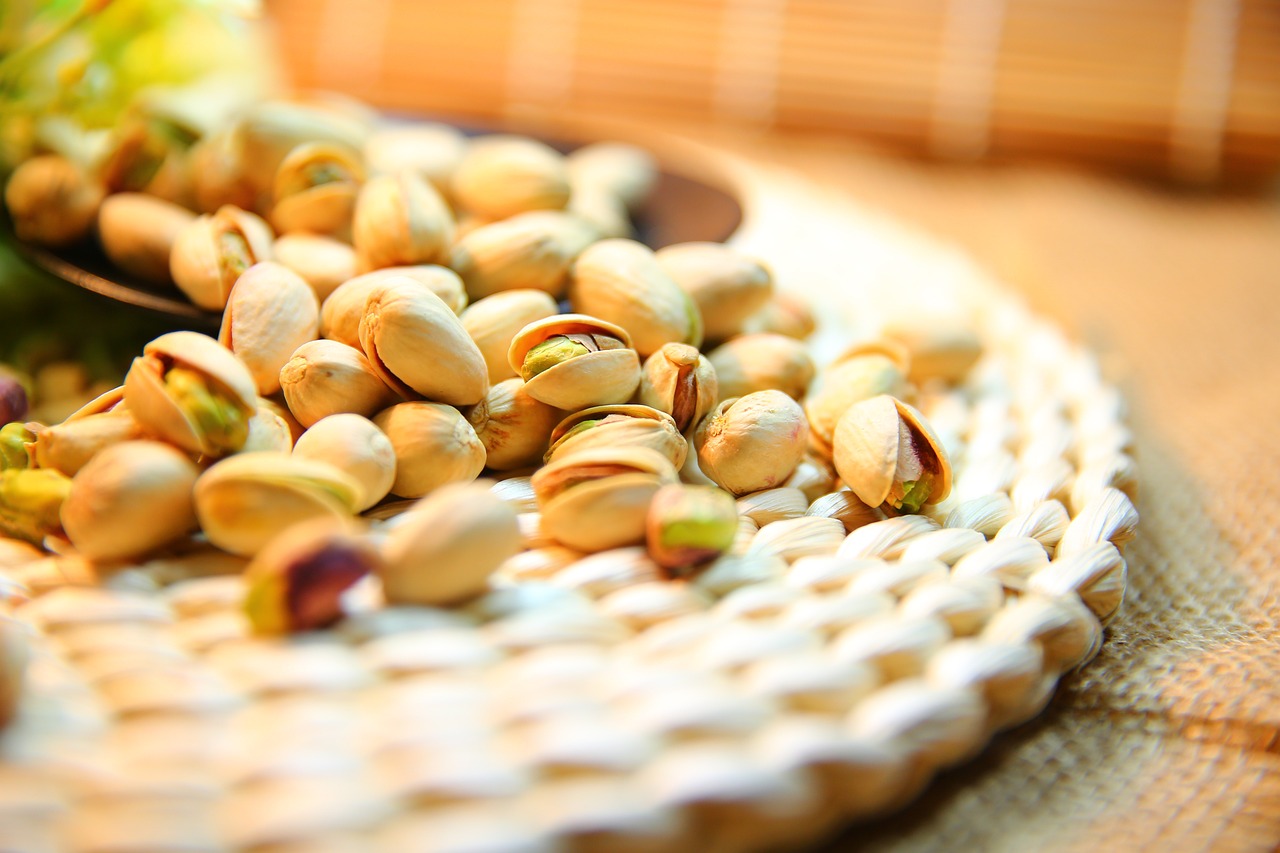
Pistachio Nutrition Facts
- Calories: 69
- Fat: 56 g
- Sodium: 1 mg
- Potassium: 1,261 mg
- Carbohydrates: 34 g
- Protein: 25 g
- Vitamin C: 11%
- Iron: 26%
- Vitamin B6: 104%
- Magnesium: 37%
- Calcium: 12%
So, even though cats can have pistachios and they have some great benefits, they aren’t necessary. Often, your cat won’t bat an eyelash at these drupes anyway, as they aren’t even in the realm of their natural diet.

Pistachios Are Non-Toxic to Cats
Pistachios are non-toxic to cats, but it doesn’t mean they are a smart choice for a quick snack. There is no nutritional benefit your cat can get from pistachio that they couldn’t get from something in their natural diet.
Pistachios are loaded with fat, which can hurt felines. Plus, all the seasonings and salt added to pistachios can have serious consequences. Pistachio shells cause the most significant risk of all. Let’s get into these things one by one.
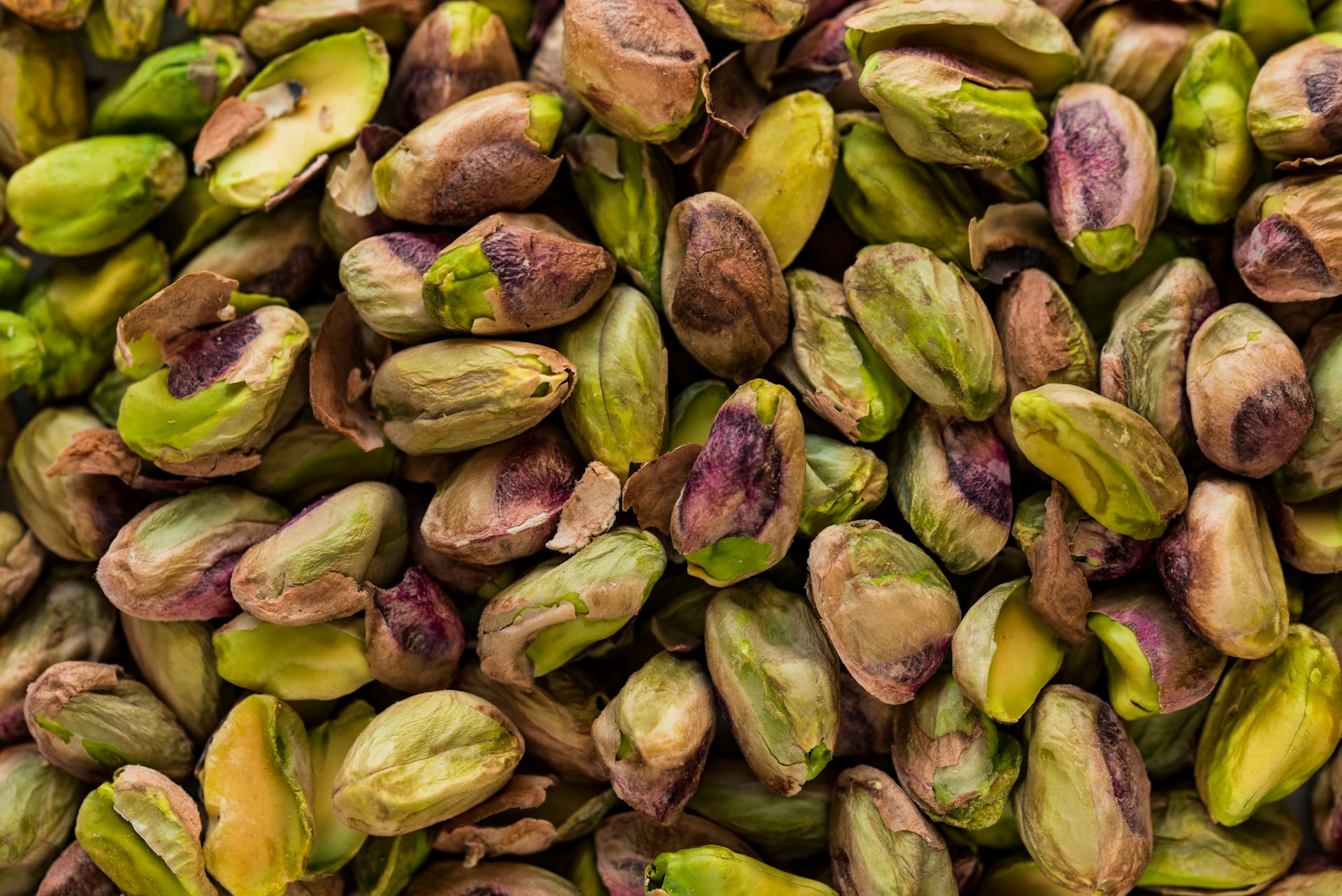
Downfalls of Pistachios for Cats
There are plenty of reasons why pistachios are bad for cats. Here are a few.
1. Fat
Pistachios contain a whopping 67% fat content. That is incredibly high and unnecessary for your kitty regularly. Of course, your cat needs fat to aid in body structure. However, this is far too much for any feline, as too much fat in the diet is bad for heart health. It can also cause them to develop a condition known as pancreatitis.
2. Salt
Pistachios are often heavily salted. Your cat will not benefit from having salt in their diet whatsoever. In fact, too much salt can be toxic and even deadly to cats.
Cats usually don’t like salty foods. Plus, pistachios likely won’t have enough salt on them to cause your cat any huge internal injury—but it’s best to steer clear anyway.
3. Seasonings
Pistachios pair well with so many different flavors. They may contain several seasonings that can pose potential health risks to your cat. Even though the pistachios themselves are non-toxic, the seasonings like onion and garlic may be. Cats are generally put off by these smells and tastes, but they might not deter every feline. If your pistachios are not plain and free of added salt or flavors, keep them away from your cat altogether.
4. Shells
The exterior of pistachios is incredibly strong, hard, and sharp. These shells would not break down in the stomach or intestine, risking puncturing the delicate digestive tract at any turn.
As you can imagine, swallowing a shell could wreak havoc on your cat’s digestive system and damage the esophagus.
If you suspect that your cat has eaten a pistachio shell, have them evaluated by a veterinarian. Do not delay or wait to see if they can pass the object. If your cat gets a pistachio lodged in their intestine, surgery may be necessary.
If you need to speak with a vet but can't get to one, head over to PangoVet. It's an online service where you can talk to a vet online and get the advice you need for your pet — all at an affordable price!


Proper Cat Diet
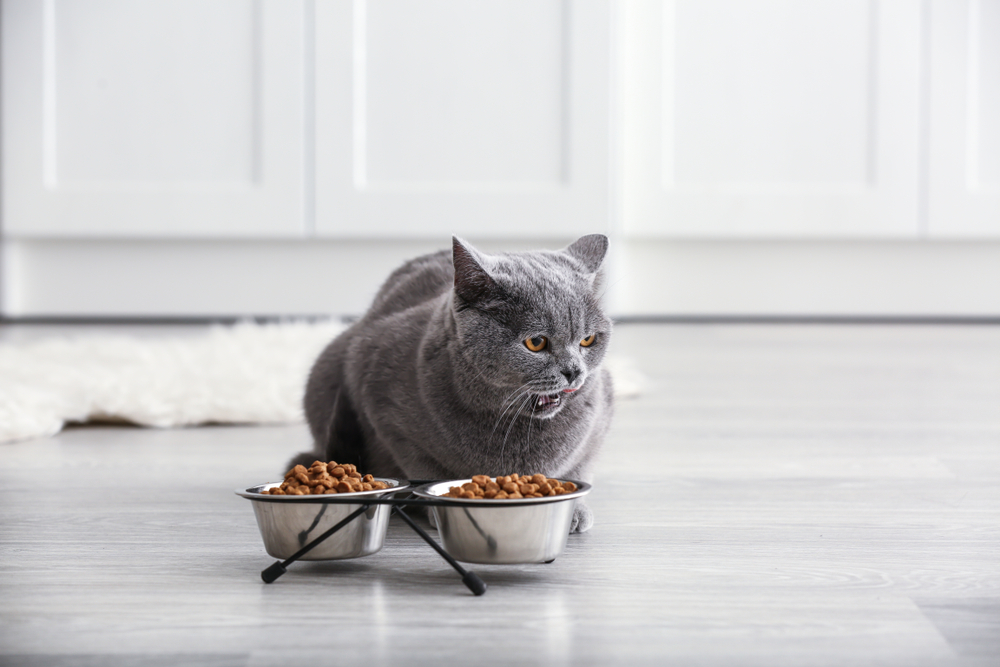
Cats need nothing else other than a feline-specific cat food formula. Whichever food you choose, make sure it meets all nutritional requirements. It’s good practice to keep your pets away from human food when you can.

Final Thoughts
Pistachios are luckily non-toxic to cats as long as they are also free of potentially harmful seasonings. However, it would help if you kept them out of reach. If your cat is begging, consider giving them a cat-friendly snack instead of these little green drupes. Remember, it’s imperative to pick up shell casings after snacking. If swallowed, they can wreak havoc on your cat’s digestive tract.
You might also like:
- Can Cats Drink Salt Water? Vet-Reviewed Facts & Advice
- Can Cats Eat a Puppuccino (Pup Cups) From Starbucks? Facts & FAQ



